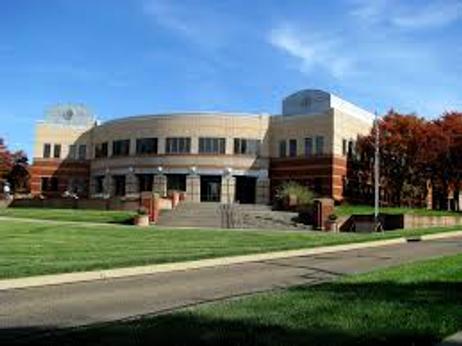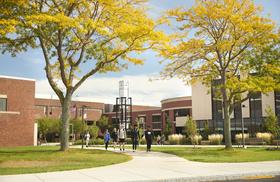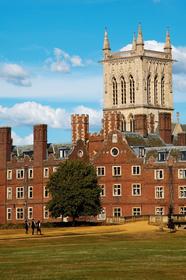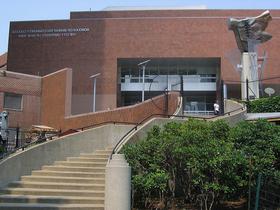When President Obama took office in 2009, he adopted the ambitious goal of raising college graduation rates in America to 60 percent, translating to five million additional college graduates by 2020. Achieving this lofty goal has already proven easier said than done, as education costs continue to increase nationwide. This month, the President called a meeting with college officials, who were invited to the White House to discuss with the President how to make college less expensive and more productive. The task is far from negligible, as many issues must be addressed before Washington will see an improvement in the current state of the community college system.
The Latest Meeting
According to a report at Inside Higher Ed, the latest meeting between President Obama and college leaders was unusual on three counts. First, the meeting was called rather last minute, with college officials scrambling somewhat to make it to Washington for their appointment. Second, the meeting was held behind closed doors, without journalists or others privy to the shared information. Finally, the President attended the meeting instead of a representative from the President’s staff, as is the norm with most meetings.
The Washington meeting was well-attended, with representatives from large state systems, private institutions, and a community college system in attendance. The three representatives from state systems included Nancy Zimpher, chancellor of the State University of New York; Francisco Cigarroa, chancellor of the University of Texas System; and William E. Kirwan, chancellor of the University System of Maryland. Three representatives from public universities were also included: Holden Thorpe, chancellor of the University of North Carolina at Chapel Hill; Freeman Hrabowski, president of the University of Maryland at Baltimore County; and F. King Alexander, president of California State University at Long Beach.
This latest meeting included one community college leader: Thomas Snyder, president of the Indiana Ivy Tech Community College System. Three representatives from private universities also attended, emphasizing affordable education and online options offered by these institutions. The private school presidents included Jared L. Cohon, president of Carnegie Mellon University; Larry Shinn, president of tuition-free Berea College; and Robert Mendenhall, president of Western Governors University.
This video explains the challenge of increasing college graduation rates.
Focus on Affordability
Although the meeting was held privately, its purpose appeared to be the rising cost of higher education, and the increased debt college students are now shouldering nationwide. According to the Downey Patriot, President Obama emphasized throughout the meeting the importance of “bold and innovative solutions” to make higher education more affordable to a larger number of Americans. Attendees shared ideas on what had worked for them in the areas of affordability, accessibility, and productivity in their college systems.
“President Obama and Secretary Duncan are clearly concerned about addressing the college affordability and productivity issue,” Alexander told the Downey Patriot. “This is why it was nice to receive an invitation to discuss, along with a small number of my colleagues, with President Obama all of our comprehensive efforts to graduate our students while still remaining among the nation’s most affordable universities.”
There are plenty of good reasons to be concerned about the cost of higher education today. An article at Gawker reports on a recent survey that showed tuition at community colleges is destined to rise in nearly all 50 states. Increases may be attributed to cuts in state-funded financial aid and Pell Grants and to state operating budgets by as much as 75 percent.
According to a report at CBS, many economists favor the theory that college prices will inevitably increase faster than inflation. Since higher education is an industry that requires plenty of personal, face-to-face contact to be successful, that feature leaves little room for cutting of staffing like other industries. In other words, it is virtually impossible to serve more people with fewer workers since the process of higher education cannot be easily automated. However, unlike other service-oriented industries, people complain when higher education becomes unaffordable since many see it as the ticket to upward mobility.
This video records President Obama speaking about college graduation rates.
Modeling after Race to the Top
The other concern about the cost of higher education is the government's ability to push institutions to reform for the better. With little incentive to make policy changes that would benefit student outcomes, some schools are simply not making the necessary effort to bring their schools to the next level. At the recent meeting, Kirwan proposed a program comparable to the successful Race to the Top program used by K-12 schools that could be modified for colleges.
“We put on the table the notion of having some sort of program, maybe modeled on Race to the Top, where there could be some incentive provided that states could compete for if they were willing to make certain policy changes,” Kirwan told CBS. Kirwan added that this program could satisfy the administration’s desire to use the available resources for better results.
The meeting was one of many in which Obama called to reassess the current state of higher education in this country. With the high aim of churning out more college graduates to redeem America’s place as number one in education in the world, the system has a long way to go to fix itself and become more affordable, accessible, and productive for college hopefuls in the future.
Questions? Contact us on Facebook. @communitycollegereview















